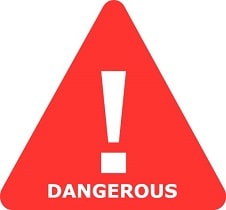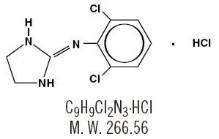Clorpres | Clonidine Hydrochloride 50 Mg, Chlorthalidone 50 Mg while Breastfeeding

What is Clorpres | Clonidine Hydrochloride 50 Mg, Chlorthalidone 50 Mg used for?
Can I continue breastfeeding if I am using Clorpres | Clonidine Hydrochloride 50 Mg, Chlorthalidone 50 Mg? How long does it stays in breast milk?

Nursing Mothers As clonidine hydrochloride is excreted in human milk, caution should be exercised when it is administered to a nursing woman.
Nursing Mothers Thiazides are excreted in human milk. Because of the potential for serious adverse reactions in nursing infants from chlorthalidone, a decision should be made whether to discontinue nursing or to discontinue the drug, taking into account the importance of the drug to the mother.
Clorpres | Clonidine Hydrochloride 50 Mg, Chlorthalidone 50 Mg Breastfeeding Analsys
Clonidine hydrochloride while Breastfeeding
Low RiskCAS Number: 4205-90-7
It may inhibit prolactin release. Check-up blood pressure
Chlorthalidone while Breastfeeding
DangerousCAS Number: 77-36-1
Thiazidic diuretic. Long-term treatment with diuretic drugs (particularly those Thiazides with long lasting effect and loop-acting drugs) may inhibit lactation. Use a lower dose as possible, especially during the first postnatal month.
Clorpres | Clonidine Hydrochloride 50 Mg, Chlorthalidone 50 Mg Breastfeeding Analsys - 2
Clonidine hydrochloride while Breastfeeding
CAS Number: 4205-90-7
Because of the high serum levels found in breastfed infants, possible infant side effects, and the possible negative effects on lactation, other antihypertensive agents are preferred, especially while nursing a newborn or preterm infant.[1] Clonidine used as a single postpartum dose as a neuraxial analgesia adjunct probably has not been studied, but it may reduce the need for other medications or their dosages, and appears unlikely to affect breastfeeding.[2]
Chlorthalidone while Breastfeeding
CAS Number: 77-36-1
Although amounts of chlorthalidone in milk are not great, its slow clearance may lead to accumulation in the infant, especially while nursing a newborn or preterm infant. It may also suppress lactation. An alternate drug may be preferred.

What should I do if already breastfed my kid after using Clorpres | Clonidine Hydrochloride 50 Mg, Chlorthalidone 50 Mg?
You should immediately inform your health care provider about Clorpres | Clonidine Hydrochloride 50 Mg, Chlorthalidone 50 Mg usage and your breastfeeding interval after usage of
My doctor has prescribed me Clorpres | Clonidine Hydrochloride 50 Mg, Chlorthalidone 50 Mg, what should I do?
Please double check with your doctor if he is aware of your breastfeeding stratus, Ask your doctor if there is any safe alternative of Clorpres | Clonidine Hydrochloride 50 Mg, Chlorthalidone 50 Mg. Check with your doctor if you shall temporally stop breastfeeding. You may go for second opinion as well. Still after all of this if your doctor still recommends Clorpres | Clonidine Hydrochloride 50 Mg, Chlorthalidone 50 Mg then go for it as they have access on more detailed medical and scientific information and they understand your individual medical situation much better.
If I am using Clorpres | Clonidine Hydrochloride 50 Mg, Chlorthalidone 50 Mg, will my baby need extra monitoring?
Extreme level of monitoring required as Clorpres | Clonidine Hydrochloride 50 Mg, Chlorthalidone 50 Mg could be dangerous for kid.
Who can I talk to if I have questions about usage of Clorpres | Clonidine Hydrochloride 50 Mg, Chlorthalidone 50 Mg in breastfeeding?
US
National Womens Health and Breastfeeding Helpline: 800-994-9662 (TDD 888-220-5446) 9 a.m. and 6 p.m. ET, Monday through Friday
UK
National Breastfeeding Helpline: 0300-100-0212 9.30am to 9.30pm, daily
Association of Breastfeeding Mothers: 0300-330-5453
La Leche League: 0345-120-2918
The Breastfeeding Network supporter line in Bengali and Sylheti: 0300-456-2421
National Childbirth Trust (NCT): 0300-330-0700
Australia
National Breastfeeding Helpline: 1800-686-268 24 hours a day, 7 days a week
Canada
Telehealth Ontario for breastfeeding: 1-866-797-0000 24 hours a day, 7 days a week
